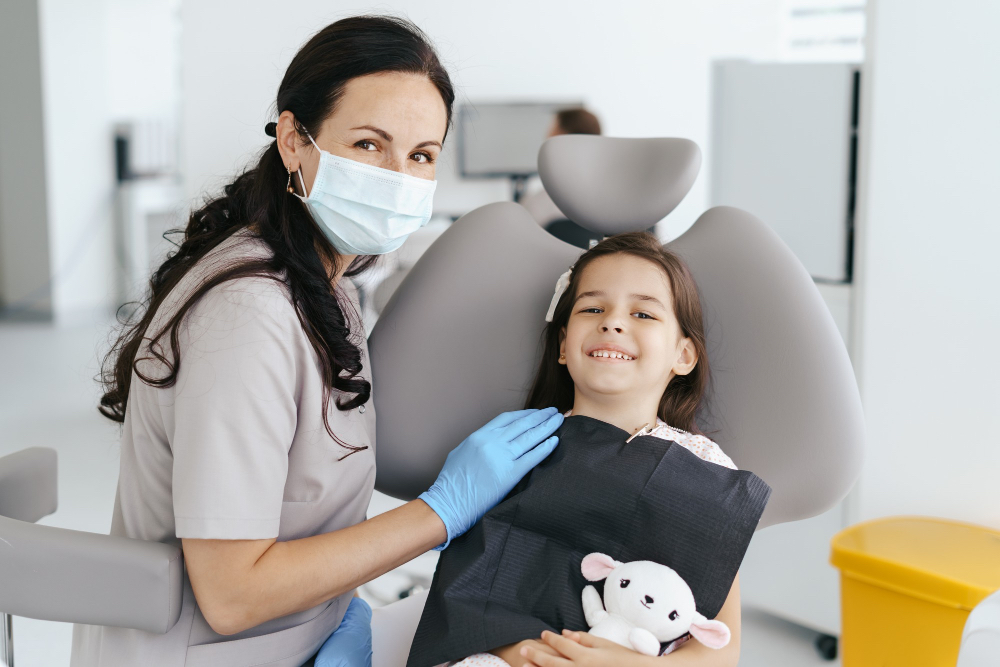Palate expanders: Do you have questions about mouth expansion and it side effects? You’ve come to the right place!
Dr. Normand Bach, orthodontist in Montréal, is here to answer the most frequently asked questions about mouth expansion, also known as “palatal expansion”.
What is palatal expansion and what is it used for?
A palatal expansion is a procedure in which an appliance is placed to widen the bony arch of the upper jaw. At the same time, the palate is enlarged.
It can be useful in a wide variety of situations and can correct many problems such as:
- Overlapping teeth
- Aesthetic defect
- Jaw deviation
- And a few other conditions
In fact, sometimes a narrow jaw can even cause breathing problems, since your nasal cavity is directly above your mouth.
It is difficult to summarize what a mouth expansion is used for, as it can be used to address and adjust many different problems. Trust an oral health professional to recommend this procedure when it is needed.
How is the palate expander placed?
Once your child has consulted with a dentist and the latter has determined that this procedure would be best, the first appointment is very simple.
Using molds, an optical camera and braces, we will customize an appliance for your child and his palate. Each case is different and a well-adapted appliance is essential for the success of the expansion.
A second appointment is then made to place the appliance.
During one of these two appointments, we will give you everything you need to ensure your child’s health and the success of the procedure such as:
- Tips on how to maintain oral hygiene without interfering with the work of the appliance
- Explanation of how the appliance works
- Everything needed to maintain the appliance
You will leave this second appointment with a clear idea of how the procedure works and what you need to do to make sure everything goes well.
What are the side effects of mouth expansion?
During the first few days after the appliance is placed, it is normal to experience some side effects, such as hyper salivation and a change in speech. In general, these effects should disappear within a few days after the appliance is placed.
However, it is very possible that your child’s body will require a slightly longer period of adaptation. Therefore, there is nothing to worry about if your child is still salivating too much a week after the procedure.
Throughout the expansion, you will notice some differences and changes in your child’s mouth. First, your child should feel a little pressure when the appliance is doing its job. This pressure is perfectly normal.
It is also normal to see a space appear between the upper central incisors, often called “pallets”. These same teeth may also be more sensitive than usual and slightly mobile. All of these effects are normal and will return to their usual regular condition during the retention phase.
You should contact your dentist if you experience any sharp pain or if your child tells you about any other side effects of mouth expansion that do not seem normal.
Is palatal expansion possible for adults?
Unfortunately, palatal expansion with braces is not possible for adults. In fact, the bones that are being expanded are already strong and developed in adults. It is therefore impossible to enlarge them with the help of a device.
However, palatal expansion is still possible, but it must be done through a surgical procedure performed by a maxillofacial surgeon.
The use of a mouth expansion device in children avoids complications related to a narrow palate. These same complications could require surgery in an adult.

What is the ideal age for mouth expansion?
The age range for the treatment to be effective is quite long. In general, a child between the ages of 6 and 13 can be treated with palate expanders. In most people, the palate begins to harden around the age of 14. It is around this age that the procedure becomes less effective.
The malleability of the bone in children is also the main reason why this procedure is painless. Again, if your child experiences significant pain during treatment, it is important to call your dentist.
Orthodontics for children is one of Dr. Normand Bach’s specialties. If you or your child needs a consultation or orthodontic care in Montréal, there’s no question: make an appointment today!